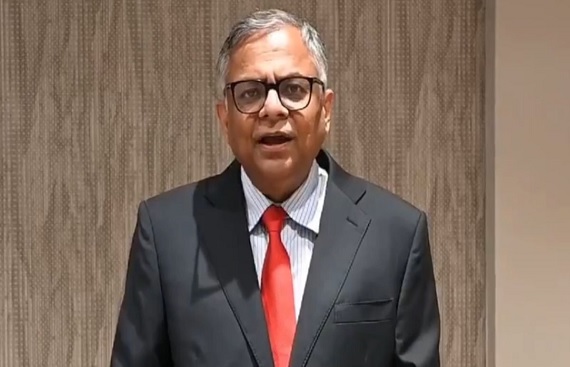Tata Sons Launches Rs 500 Crore Trust to Support AI171 Crash Victims
By
siliconindia | Tuesday, 08 July 2025, 02:57 Hrs

- Tata Sons has approved a Rs 500 crore public charitable trust to support families affected by the June 12 Air India crash in Ahmedabad.
- Rs 300 crore will go to families of the deceased, Rs 50 crore for injured victims, Rs 50 crore to rebuild B.J. Medical College hostel, and Rs 100 crore for long-term needs.
- The trust will be led by Tata Sons Chairman N Chandrasekaran, mirroring Tata’s 26/11 relief efforts and showcasing long-term humanitarian commitment.
In a landmark humanitarian move, the board of Tata Sons has approved the formation of a Rs 500-crore public charitable trust to extend financial support to the families affected by the tragic Air India Flight AI171 crash in Ahmedabad on June 12. This initiative, confirmed by sources familiar with the development, marks a significant effort by Tata Group to address the aftermath of one of India’s deadliest aviation disasters in recent memory.
Air India, which was operating the ill-fated Boeing 787 aircraft, has been instructed by Tata Sons to begin reaching out to families of the victims including those who lost their lives and those injured to collect valid documentation and initiate disbursements. A senior Air India executive said, “Air India has been asked to reach out to all affected families of flight AI171, including families of the deceased and the injured, to include them under the newly formed trust”.
The crash claimed 241 lives 230 passengers, 11 crew members, and 19 people on the ground. The only survivor, a 26-year-old male passenger, was hospitalized for five days. Over 60 individuals on the ground sustained injuries. Among those killed was former Gujarat Chief Minister Vijay Rupani, whose body was identified through DNA due to the extreme heat of the crash, which reportedly reached temperatures of 1,500°C (2,700°F), complicating recovery and identification procedures.
The incident marks Air India’s first fatal crash or hull loss since the Kanishka bombing of Flight 182 in 1985 and is also the first fatal incident involving a Boeing 787 since the aircraft’s debut in 2011. It stands as India’s deadliest aviation disaster since the 1996 mid-air collision over Charkhi Dadri.
Of the Rs 500 crore corpus, Rs 300 crore will be allocated as direct financial support to the families of those who lost their lives, including passengers and frontline doctors from B.J. Medical College. Another Rs 50 crore will fund treatment for those injured primarily doctors and staff of B.J. Medical College, whose hostel building was also impacted by the crash. An additional Rs 50 crore is earmarked for rebuilding the hostel block, while the remaining Rs 100 crore will be set aside for the long-term needs of the affected families.
Tata Sons expects to finalize the trust's registration and appoint a board of trustees by the end of July. Group Chairman N Chandrasekaran is expected to lead the AI171 Trust, which will also include independent trustees outside of the Tata Group. The initiative is being led operationally by P.B. Balaji, the Group CFO of Tata Motors, who brings a wealth of experience in corporate governance and financial structuring.
This trust-based approach draws parallels with the Taj Public Service Welfare Trust established by Indian Hotels, a Tata Group company, after the 26/11 Mumbai terror attacks. That trust has since expanded its scope to support security personnel, healthcare workers, and migrant laborers during the COVID-19 pandemic.
In the immediate aftermath of the crash, Tata Sons and Air India jointly announced an ex-gratia financial assistance of Rs 1.25 crore per deceased individual’s family. This amount will now be disbursed through the AI171 Trust under the newly sanctioned Rs 500 crore fund.
Meanwhile, compensation claims from the crash are expected to touch $475 million, primarily driven by liability payouts amounting to an estimated $350 million. A significant portion of this stems from the fact that nearly 50 of the passengers onboard were foreign nationals, thereby invoking international aviation liability protocols.
Tata Sons, which owns a majority stake in Air India and a controlling interest in Tata AIG General Insurance, is also indirectly involved on the insurance side of the crash. However, most of the insurance risk was reinsured internationally, minimizing the direct financial impact on Tata AIG.
As the nation continues to mourn the catastrophic loss of lives in the AI171 disaster, this comprehensive financial and rehabilitation initiative by Tata Sons sets a powerful precedent for corporate responsibility and compassionate governance in the face of tragedy.
